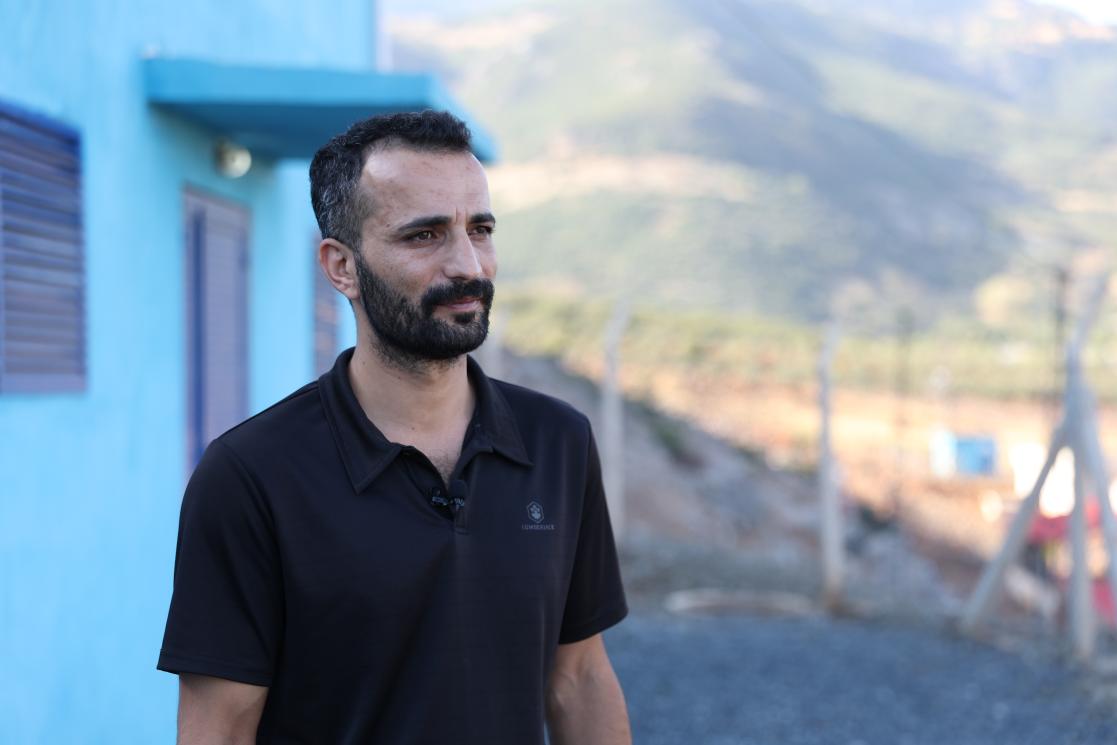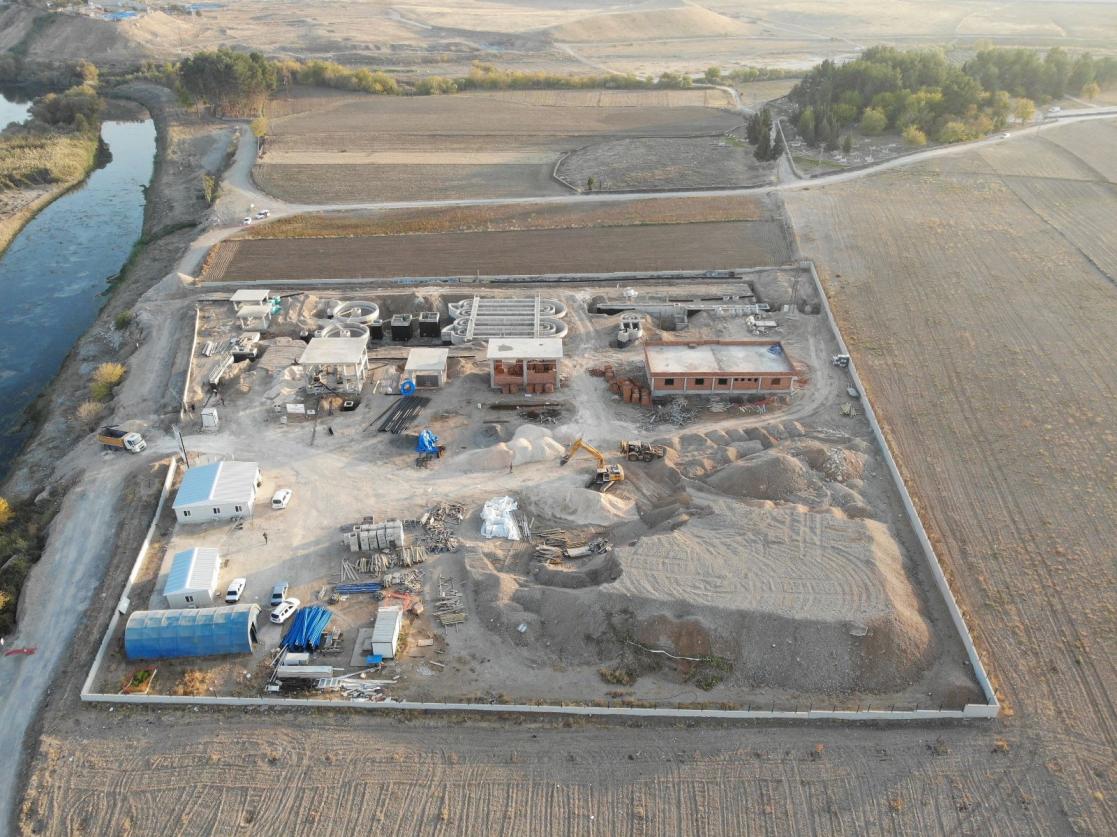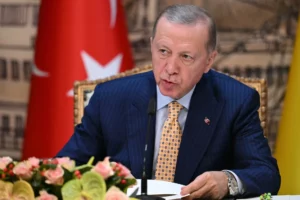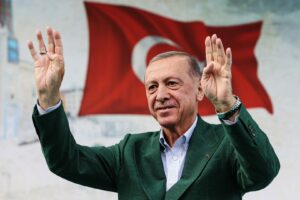Mahsunde Dağcı, a livestock farmer living in the Yavuzeli district of Gaziantep, recalls how she used to take her animals to a stream that flowed with polluted water. Today, she shares the relief of having access to clean water, not only for her home but also for her livestock: “The quality of the water has made a difference in the health of our animals. We used to face diseases caused by dirty water, but now those problems are gone. Thank God.”
This is just one of the many success stories from the Municipal Resilience Facility (MRF) Project in Türkiye, which is financed by the European Union’s MADAD Fund and managed by the European Investment Bank (EIB).
The project aims to improve the living conditions of host communities and Syrian refugees under temporary protection in Türkiye. Infrastructure development efforts have been carried out in regions with large populations of both Turkish citizens and Syrians, living in Gaziantep, Kilis, Şanlıurfa, Hatay, and Adıyaman.
The improvement of water and sewerage services for local communities and Syrian refugees under temporary protection has significantly bolstered public health in these areas. Projects such as the Boğaziçi Altınüzüm Sewerage System and the Karkamış Drinking Water Treatment Plant have not only increased access to clean water but also elevated living standards, sparking positive changes in the community. These developments have helped people feel safer and more secure in their environments.
A Beacon of Hope for Communities: The Impact of the Projects in Gaziantep
Despite being one of the cities most affected by both the earthquake and migration, Gaziantep has become a model of resilience and transformation in the water infrastructure sector, thanks to investments made under the MRF Project. Projects managed by the Gaziantep Water and Sewerage Administration (GASKİ) have led to significant changes in the city’s water and sanitation infrastructure.

The improvements made to the Altınüzüm-Sulumağara Drinking Water Network have resolved long-standing issues, such as the provision of drinking water through asbestos pipes. Kadir Daşdemir, a civil engineer working on the project, notes that the new network consists of 90 kilometers of non-asbestos pipes that are leak-free. Describing the situation before the project, he states: “Our village had no sewage system. The ground was gravel, so water would not accumulate, causing waste to seep into the drinking water. Thanks to the European Investment Bank, İLBANK, and GASKİ, this region has now been properly planned.”
Local resident Bünyamin Kahraman also reflects on the impact of the improvements on the community: “We didn’t have underground sewerage before, only cesspits. Now, we have both a sewage system and an improved drinking water network. Our drinking water is no longer contaminated by wastewater.”
Another critical project, the Karkamış Drinking Water Treatment Plant, provides clean drinking water not only to the people of Gaziantep but also to communities near the Syrian border. One of the plant’s beneficiaries, Şakir Polat, explains the positive impact: “Before the treatment, there was a bad odor here near the Euphrates River. Mosquitoes and other insects were everywhere. Now, there is no smell, and the insects are gone.”
The water and sewerage systems improved under the project have become more resilient to natural disasters like earthquakes, ensuring continued access to clean water and improving public health overall. Residents across Gaziantep’s different neighborhoods have shared how this project has made a difference for themselves and their families, praising the resilience of the infrastructure and the ability to maintain uninterrupted services.
Water as a Lifeline in Times of Crisis
The MRF Project has played a critical role in building resilience for the communities in Southeast Türkiye. Following the devastating earthquakes of February 2023, the water and sewerage infrastructures in Gaziantep and surrounding areas were put to the test. Despite being located just 300 meters from a fault line, the Boğaziçi Yeşilyurt Wastewater Treatment Plant resumed operations quickly after the earthquake.
Ferhat Kahraman, a beneficiary of the Boğaziçi-Altınüzüm-Sulumağara Sewerage and Drinking Water Networks, explains: “After the earthquake, the pipes in the infrastructure were damaged. However, they were repaired and restored for the public. Now, the region has reliable drinking water and a functioning infrastructure.”
Mehmet Demir, a GASKI employee, highlights the importance of uninterrupted water supply in preserving public health: “If we had faced untreated waste water after the earthquake, diseases could have spread. But thanks to these projects, our infrastructure was resilient, and we were able to restore water services without delay.”

What is the MRF project?
The Municipal Resilience Facility (MRF) project is an initiative funded by the EU Regional Trust Fund in response to the Syrian crisis, known as the MADAD Fund and managed by the European Investment Bank (EIB). The EU has provided €72 million in grant funding to enhance the resilience of refugees and host communities in Türkiye by supporting the municipalities and utility companies in providing essential water and sanitation services. It is being implemented in Şanlıurfa, Gaziantep, Kilis, Adıyaman, and Hatay with significant achievements in these five provinces: Around 325,000 people, including 90,000 persons under temporary protection, benefit from additional or improved water supply and sanitation services that meet EU standards. This project has also created 2,300 new jobs.
Ultimately, this project leaves behind more than just physical infrastructure; it aims to create a legacy of resilience and hope. The success of the MRF Project has evolved beyond infrastructure development into a movement that strengthens bonds between communities, marking a transformation that will continue for years to come.









